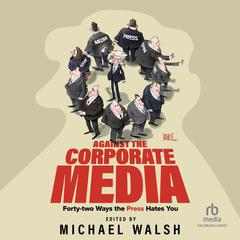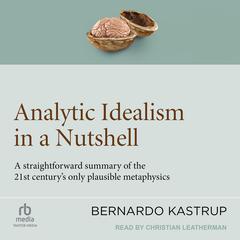 Play Audiobook Sample
Play Audiobook Sample
Poor Economics: A Radical Rethinking of the Way to Fight Global Poverty Audiobook
 Play Audiobook Sample
Play Audiobook Sample
Quick Stats About this Audiobook
Total Audiobook Chapters:
Longest Chapter Length:
Shortest Chapter Length:
Average Chapter Length:
Audiobooks by this Author:
Publisher Description
Billions of government dollars, and thousands of charitable organizations and NGOs, are dedicated to helping the world’s poor. But much of their work is based on assumptions that are untested generalizations at best, harmful misperceptions at worst.
Abhijit Banerjee and Esther Duflo have pioneered the use of randomized control trials in development economics. Work based on these principles, supervised by the Poverty Action Lab, is being carried out in dozens of countries. Drawing on this and their 15 years of research from Chile to India, Kenya to Indonesia, they have identified wholly new aspects of the behavior of poor people, their needs, and the way that aid or financial investment can affect their lives. Their work defies certain presumptions: that microfinance is a cure-all, that schooling equals learning, that poverty at the level of 99 cents a day is just a more extreme version of the experience any of us have when our income falls uncomfortably low.
This important book illuminates how the poor live, and offers all of us an opportunity to think of a world beyond poverty.
Download and start listening now!
"A much needed book on how we can tackle the issue of poverty utilizing studies on what has worked in the past. What makes this book stand out is the 'on the field' analysis that Banerjee and Duflo use. It looks at the effectiveness of programs by considering how people on the ground will utilize them. A powerful read and inspiring for anyone in the field of development economics or nonprofit orgs."
— Omar (5 out of 5 stars)
Poor Economics Listener Reviews
-
" The book brings forth research based ground reality. Amazingly well written and provides deep insight into what is wrong in our understanding of the poor. The book does not merely thrive on analyses and diagnosis alone. It even suggests some "do-able" solutions. A must read for all the policy makers an those that are ineterested in promoting the interests of the poor. "
— Anil, 2/20/2014 -
" A comprehensive overview of current aid trends and best practices. Lacks a prescription because the best advice is that aid policies shouldn't be universal - what works in one situation may not work in another, and thus each example needs specialized and individualized attention. "
— Nora, 2/10/2014 -
" I kept hoping to hear the silver bullet to best attack poverty, whereas the point was that there isn't one. Some strategies help some people in some circumstances and this book looks at the numbers to illustrate that "
— Eric, 2/2/2014 -
" J-PALers who read this, don't judge me! I'm a little ashamed that it's taken me this long to read that my bosses and colleagues put so much work into and is a core piece in what J-PAL does. But, eh! I did finish it! Superb overview of a lot of the work that is going on in development economics and clearly describes a modest and hopeful view of poverty alleviation. "
— Ben, 1/28/2014 -
" This is an incredibly well written account of the struggles and the achievements of developing economics. Highly recommend reading this book, prior to all by Sachs or Easterly. "
— Jeff, 1/14/2014 -
" A wonderful read. Instead of trying to find a universal, one-time solutions or principles/formulas like other lame books, this one delivers valuable lessons about working from the bottom up, with specific cases. Very informative and challenging material, yet it could have been better if the book can expand its examples' scope. "
— Tam, 1/8/2014 -
" Amazing book. It is not poor economics at all. "
— Lambert, 1/1/2014 -
" Very insightful and often counterintuitive. Really important addition to economic literature on developing economies and eminently readable. "
— Jesse, 12/21/2013 -
" Fantastic insight into why the poor makes the decisions they do, and what creates the right incentives and what does not. "
— Kim, 11/23/2013 -
" Really brilliant, though-provoking ideas about the economic problems facing the world's poorest people drawn from rigorous empirical research. The writing is clear and non-technical, if a bit stilted at times. You'll learn a lot. "
— Matthew, 9/5/2013 -
" Slightly data intensive but provides great analysis of various methods of philanthropy and attempts to relieve the cycle of poverty. "
— Jeremy, 7/21/2013
About the Authors
Abhijit Banerjee is the Ford Foundation International Professor of Economics at the Massachusetts Institute of Technology, and a co-founder and co-director of the Abdul Latif Jameel Poverty Action Lab (J-PAL).
Brian Holsopple has been in the voice-over and audio business for more than twenty years. His commercial client list includes Discover Channel, Virginia Lottery, and City Bank of Texas, among others. A winner of the 2007 Publisher’s Weekly Audiobook Award, he has narrated books for Arthur C. Clarke, Henry Wiencek, and Jay Rubenstein.
About Brian Holsopple
Brian Holsopple has been in the voice-over and audio business for more than twenty years. His commercial client list includes Discover Channel, Virginia Lottery, and City Bank of Texas, among others. A winner of the 2007 Publisher’s Weekly Audiobook Award, he has narrated books for Arthur C. Clarke, Henry Wiencek, and Jay Rubenstein.






















